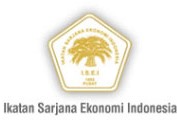The Difference of Enterprises Taxpayers Compliance after Tax Amnesty
(1) Department of Education Economic, Indraprasta PGRI University
(2) Department of Education Economic, Indraprasta PGRI University
(3) Department of Education Economic, Indraprasta PGRI University
(4) Department of Education Economic, Indraprasta PGRI University
(5) Department of Conseling and Guidence, Indraprasta PGRI University
Abstract
The purpose of this study was to determine and analyze the compliance of enterprises taxpayers before and after the tax amnesty was applied in KPP Pratama South Jakarta. The research location was at KPP Pratama Jakarta Cilandak, KPP Pratama Jakarta Pancoran, KPP Pratama Jakarta Mampang, and KPP Pratama Jakarta Pasar Minggu. Data collection with documentation techniques, namely secondary data collection. Taxpayer’s compliance data for 2015, which is SPT as of March 2016, is assumed to be data before tax amnesty. While the 2016 taxpayer’s compliance data which is SPT as of March 2017 is assumed to be the data of the tax amnesty validity period. The data analysis technique in this study uses the SPT taxpayer compliance ratio 2016 - 2017. Statistical tests using Paried Sample t-Test. The results of the study showed that the amount of enterprises taxpayer compliance submitting timely Annual Tax Returns increased by 10.60% from 13.40% to 24.00%. Furthermore, the taxpayer’s compliance ratio that did not submit the Annual Tax Return decreased by 3.90%, namely in 2016 amounted to 76.92% to 73.02% in 2017. The Paired Sample t-Test has different Enterprises Taxpayer’s compliance before and after the enactment of tax amnesty.
Keywords
Full Text:
PDFReferences
Agus, Iwan Kesuma. (2016). "Tax Amnesty as an Effort to Optimize the Tax Function" Faculty of Economics and Business Mulawarman University Indonesia (Tax Amnesty As An Effort To Optimize Tax Functions "Faculty of Economics and Business Mulawarman University Indonesia), Journal of Financial Economics, and Management, Vol 12 ISSN 0216-7786.
Alberto. (2016). Effect of Tax Amnesty Policy by the Government on the Potential of Increasing Tax Revenue in Indonesia in 2015 (Effect of Tax Amnesty Policy by the Government on the Potential for Increasing Tax Revenue in Indonesia in 2015), the scientific journal, Bakrie University. Vol. 04 (1)
.
Alm, James,. Vasquez J. Martinez &Wallace, (2009). Do Tax Amnesties Work? The Revenue Effects of Tax Amnesties During the Transition in the Russian Federation. Journal of Economics an Policy, Volume 39, Issue 2, Pages 235-253
Aryobimo, Putut and Nur Cahyonowati. (2012). Effect of Taxpayer Perception on Fiscal Service Quality on Taxpayer Compliance with Taxpayer Financial Conditions and Risk Preference as Variable Moderating Empirical Study of Individual Taxpayers in Semarang (Effect of Taxpayer Perception on Quality Services on Taxpayer Compliance with Taxpayer Financial Conditions and Risk Preference as Moderating Variable Empirical Study of Individual Taxpayers in the City of Semarang). Dipenegoro Journal of Accounting, Vol. 1 (1), 2012, page 2.
Cahyonowati, Nur. (2011). Tax Moral and Compliance Model: Individual Taxpayer. Journal of Accounting and Indonesian Auditing, 15 (2). pp. 161-177.
Darussalam, B. Bawono, et al. (2014). Understanding Tax Non-compliance: Inside Tax Edition 26 December 2014.
Urge P, Ayu D, (2017). Implications and Evaluation of Tax Amnesty Program at Taxpayer Compliance Level in Efforts to Increase Tax Revenue in the Work Area of the Pratama Singaraja Tax Service Office (Implication and Evaluation of Tax Amnesty Program at Taxpayer Compliance Level in Efforts to Increase Tax Revenue in the Work Area of the Pratama Singaraja Tax Service Office), S1 Ak E-Journal, University of Education, Ganesha.
Directorate General of Tax. Tax revenue. http://www.pajak.go.id/penerimaan-pajak. Accessed June 8, 2017.
Gunadi. (2005). Tax accounting. Jakarta: PT Grasindo.
Handayani, Ucik, dan Nujmatul Laily. 2017. The Influence of Consciousness, Tax Penalty, and the Quality of Tax Authorities Service on Tax Compliance. Journal of Accounting and Business Education, 1 (2), hal.286-297.
http://www.pajak.go.id Tax Ratio Indonesia. Accessed on 09 June 2017.
https://id.wikipedia.org/wiki/Pengampunan_pajak. Accessed on June 10, 2017.
Minister of Finance Decree No. 192 / KMK.03 / 2007 concerning Criteria for Obedient Taxpayers.
Ida Bagus Ngurah Ari Putra Wirawan and Naniek Noviari Effects of the Implementation of Tax Amnesty Policy and Tax Sanctions on Compliance with Individual Taxpayers (Effects of the Implementation of Tax Amnesty Policy and Tax Sanctions on Compliance of Individual Taxpayers) of the Accounting Journal of Udayana University Vol .21 (3). December (2017): 2165-2194DOI: https: //doi.org/10.24843/EJA.2017.v21.i03.p17
Jacques Malherbe. (2010). Tax Amnesties in the 2009 Landscape. In Inside Tax Issue 15 (May, XII). Darussalam: PT Dimension International Tax
Jaroslav KovárnÃk, Eva Hamplová, Pavel Jedlika, & Ladislav Hájek. (2015). The Causalities of the Tax Incidence and the Modeling of Tax Processes. 2nd Global Conference On Business, Economics, Management And Tourism, 30-31 October 2014, Prague, Czech Republic, Procedia Economics And Finance 23 (2015) 1253 – 1259
Junpath, Sachin. (2013). Multiple Tax Manesties and Compliance in South Africa. Durban University of Technology.
Kirchler, E., Hoelzl, E., & Wahl, I. (2008). Enforced versus voluntary tax compliance: The “slippery slope†framework. Journal of Economic Psychology, 29(2), 210-225. doi:10.1016/j.joep.2007.05.004.
Kogler, Christoph, Matthias Kasper and Erich Kirchler. (2013). Tax Policy and the News: An Empirical Analysis of Taxpayers’ Perceptions of Taxrelated Media Coverage and its Impact on Tax Compliance. University of Vienna, Austria WU – Vienna University of Economics and Business: International Taxation Research Paper Series No. 2013 – 07
Marcel Garz &Verena Pagels. (2018). Cautionary tales: Celebrities, the news media, and participation in tax amnesties, Journal of Economic Behavior & Organization, Volume 155, p. 288-300
Mardiasmo. (2014), Perpajakan. (Taxation) Revised Edition. Yogyakarta: Andi.
Muliari, N.K. and P.E. Setiawan. (2010). Effects of Perception on Tax Sanctions and Taxpayer Awareness on Compliance with Personal Taxpayer Compliance Report in Primary Tax Office (Effects of Perception on Tax Sanctions and Taxpayer Awareness on Compliance with Personal Taxpayer
Reporting at East Denpasar Primary Tax Office). Accounting and Business Journal: Faculty of Economics, Udayana University. Denpasar Timur.
Natrah Saad. (2014). Tax Knowledge, Tax Complexity and Tax Compliance: Taxpayers’ View. 2nd World Conference on Business, Economics and Management-WCBEM 2013 Procedia - Social and Behavioral Sciences 109 (2014) p. 1069 – 1075
Ngadiman and D. Huslin. (2015). Effects of Sunset Policy, Tax Amnesty, and Tax Sanctions on Tax Compliance Empirical Study at Pratama Jakarta Tax Office Kembangan, (Effects of Sunset Policy, Tax Amnesty, and Tax Sanctions on Taxpayer Compliance Empirical Study at Pratama Jakarta Tax Office Kembangan), Accounting Journal vol.12 (2), May 2015: 225-241.
Nikolaos D.Goumagias, DimitriosHristu-Varsakelis, Yannis M.Assael, (2018). Using deep Q-learning to understand the tax evasion behavior of risk-averse firms, journal Expert Systems with Applications, Volume 101, page 70.
Pinaki Bose & Michael Jetter. (2012). Liberalization and tax amnesty in a developing economy. Journal Economic ModellingVolume 29, Issue 3, Pages 761-765.
Pranadata, I Gede Putu. 2014. Effect of Taxpayer Understanding, Quality of Tax Services, and Implementation of Tax Sanctions on Compliance with Personal Taxpayers at Batu Pranadata Primary Taxpayer. (Effect of Taxpayer Understanding, Quality of Tax Services, and Implementation of Tax Sanctions Against Compliance with Individual Taxpayers at Batu Pratama KPP. UB Thesis Journal.
Ralph-C.Bayer, Harald Oberhofer, Hannes Winner. (2015). The occurrence of tax amnesties: Theory and evidence. Journal of Public Economics, Volume 125, Pages 70-82.
Sugiono. (2010). Qualitative Research Methods. (Qualitative Research Methods) Bandung: Alfabeta.
Supadmi. (2010). Enhancing Improving Taxpayer Compliance Through Quality. Accounting and Business Journal: Faculty of Economics, Udayana University. Swistak, Artur. 2015. Tax Penalties in Tax Compliance SME. Financial Theory and Practice, 40 (1), p.129-147.
Law of the Republic of Indonesia Number 11 of 2016 concerning Tax Amnesty.
Refbacks
- There are currently no refbacks.

This work is licensed under a Creative Commons Attribution 4.0 International License.






